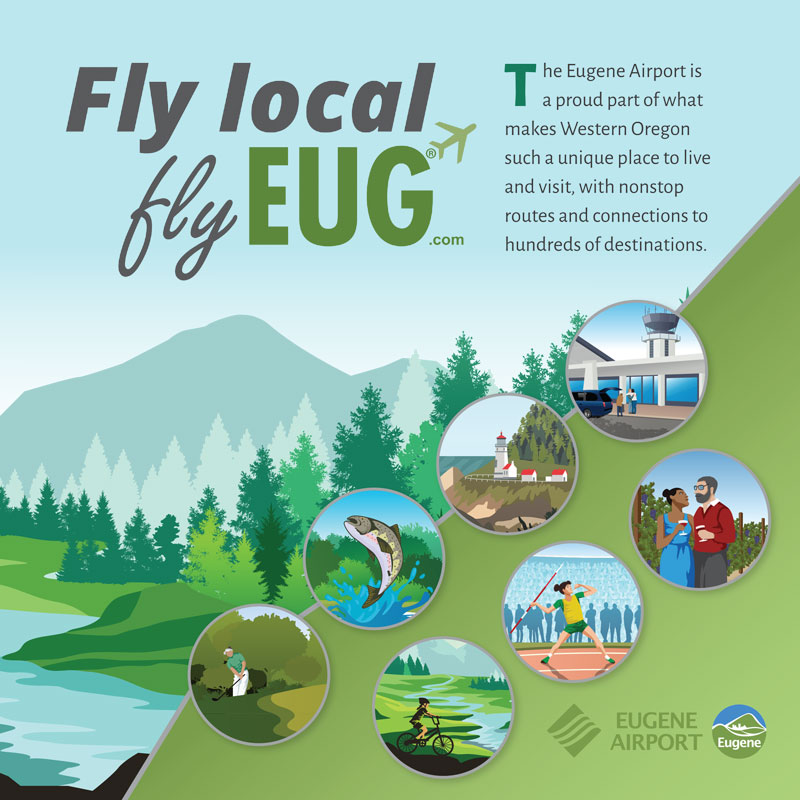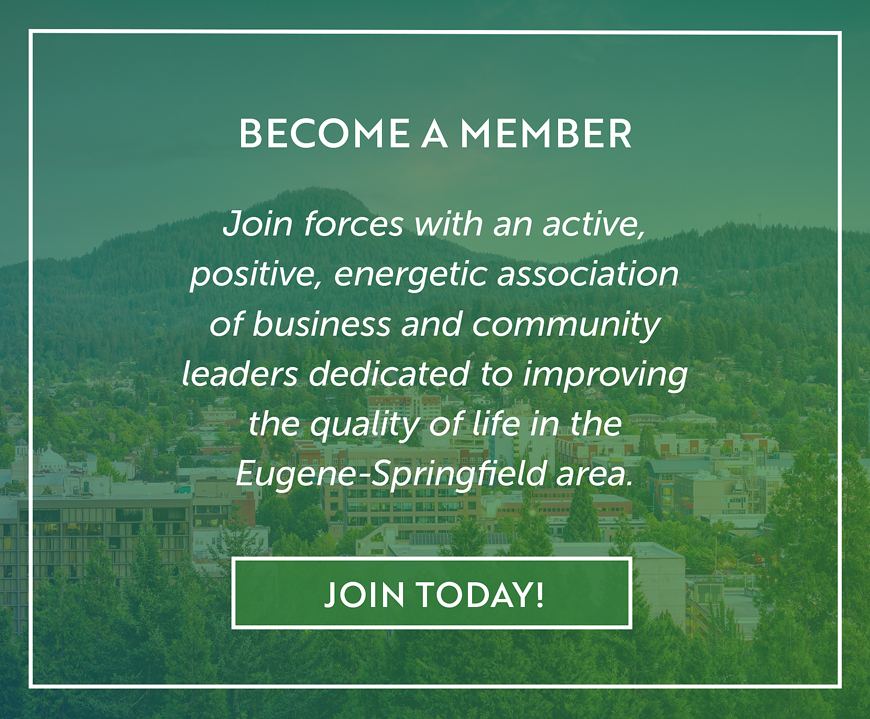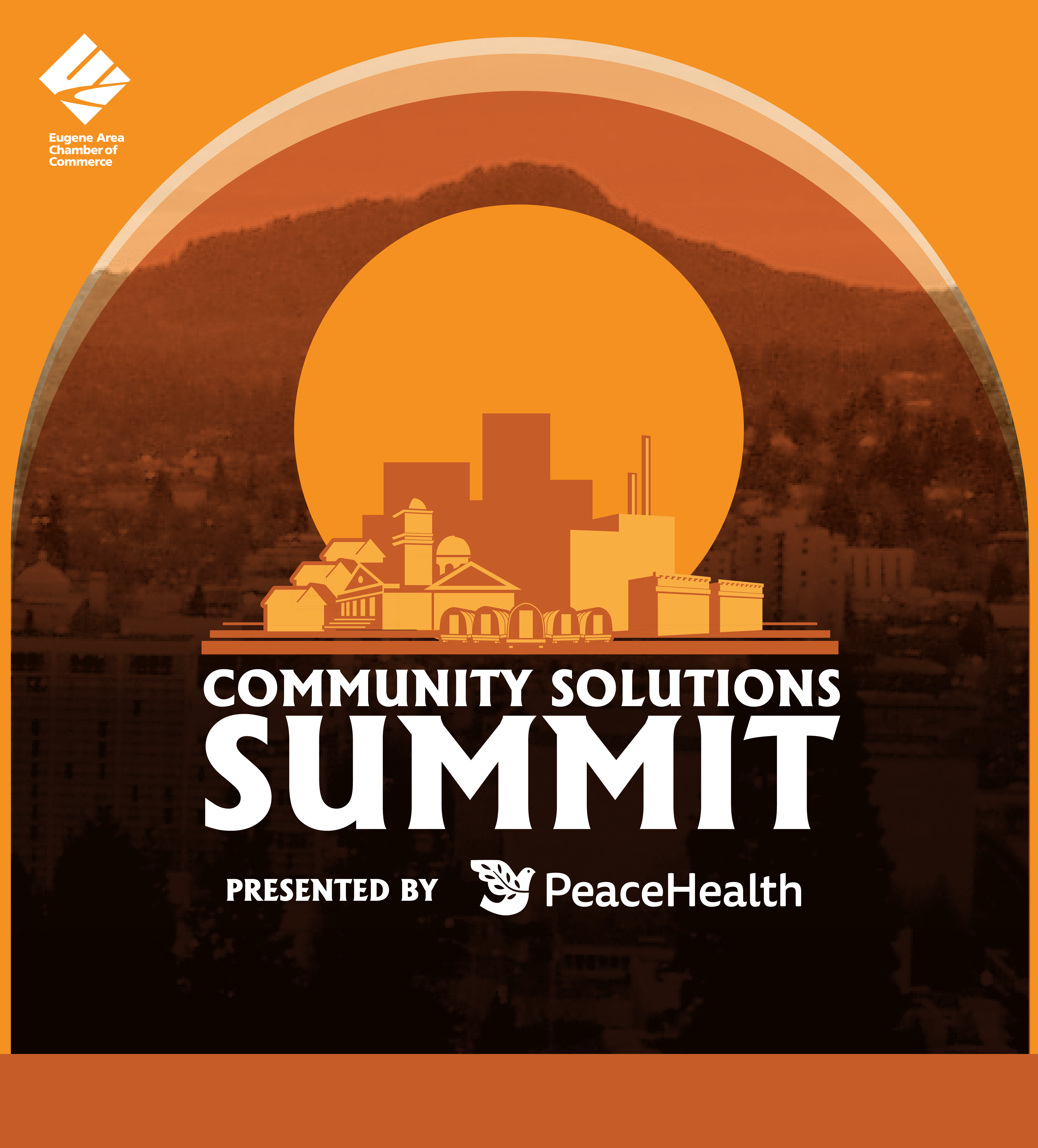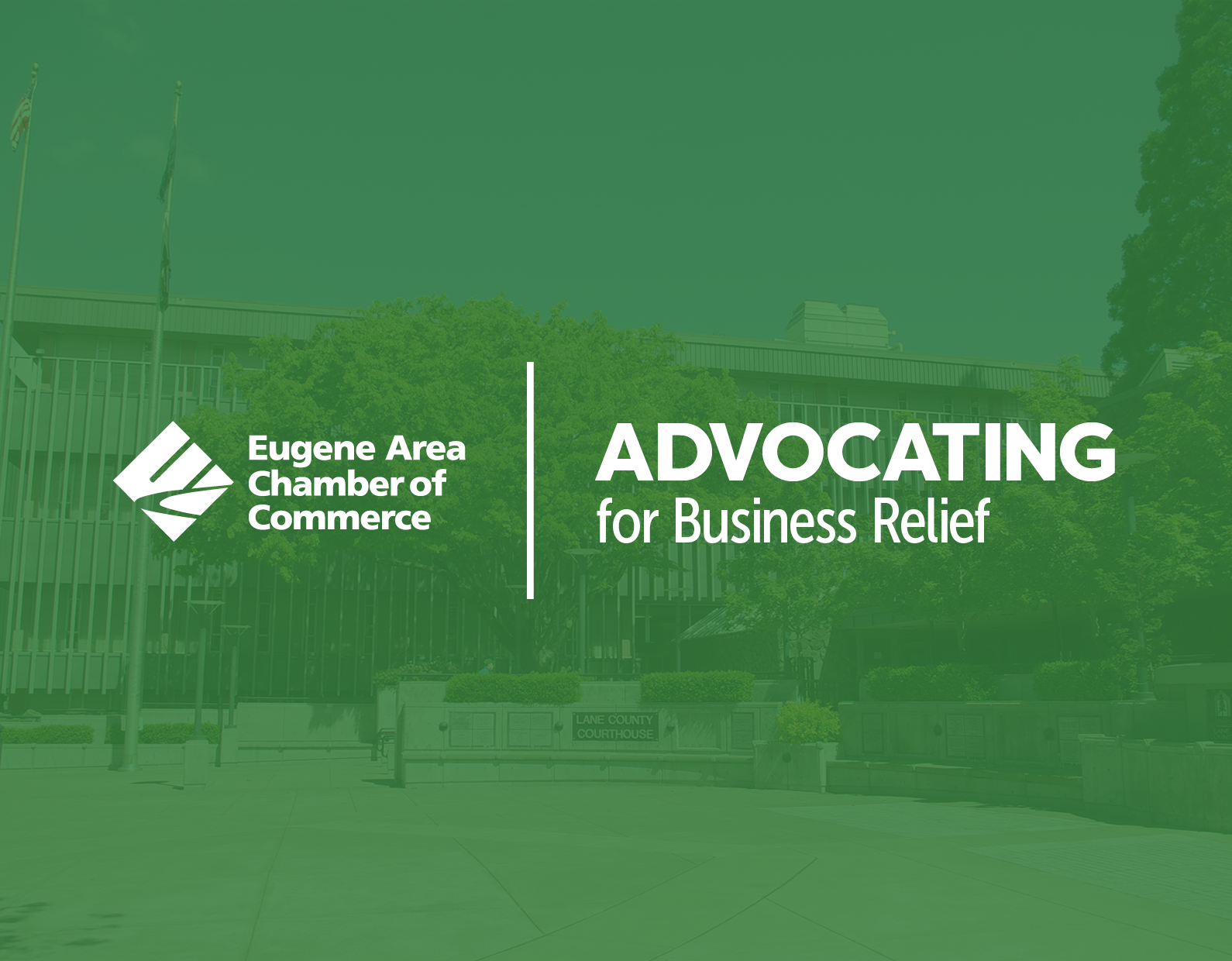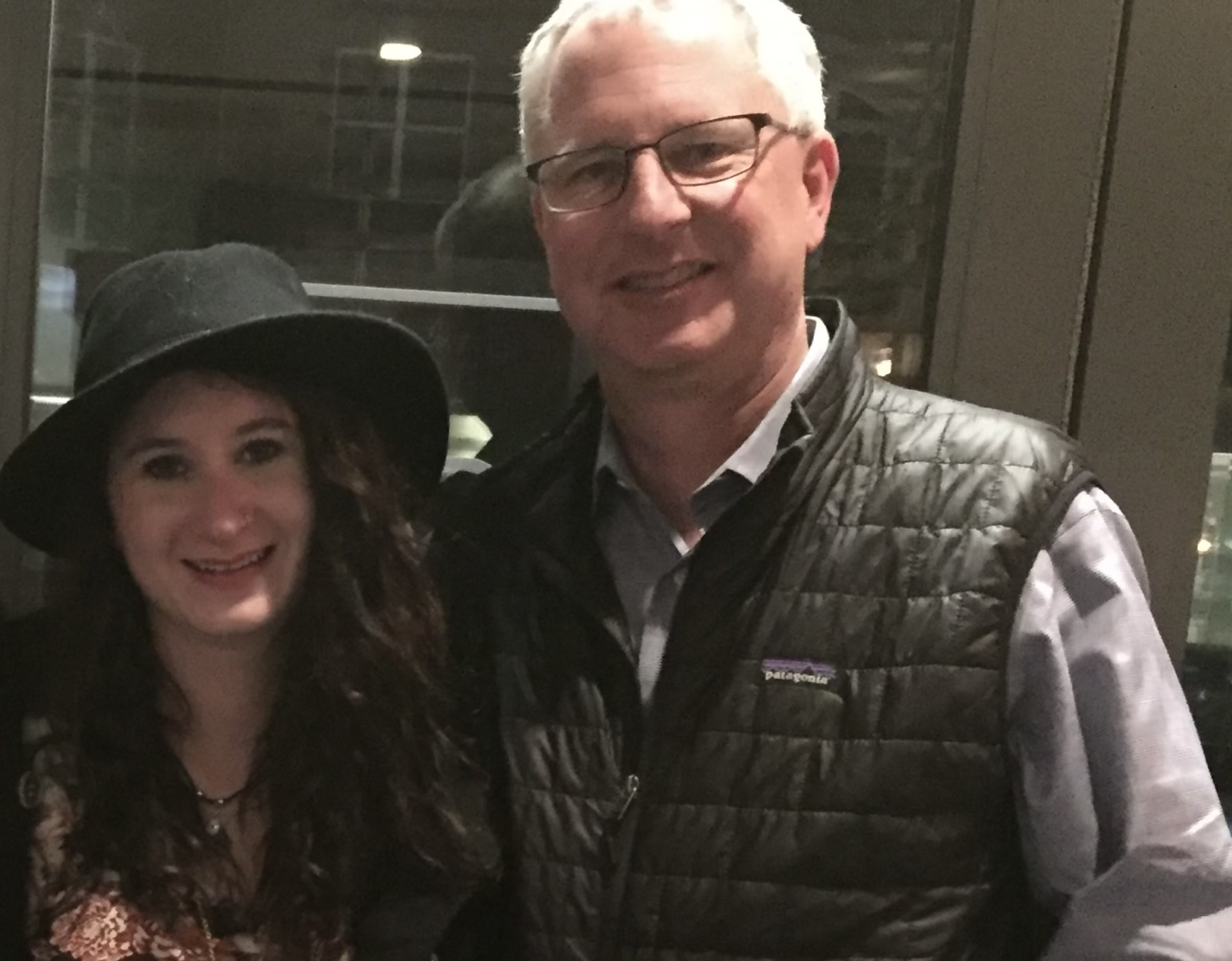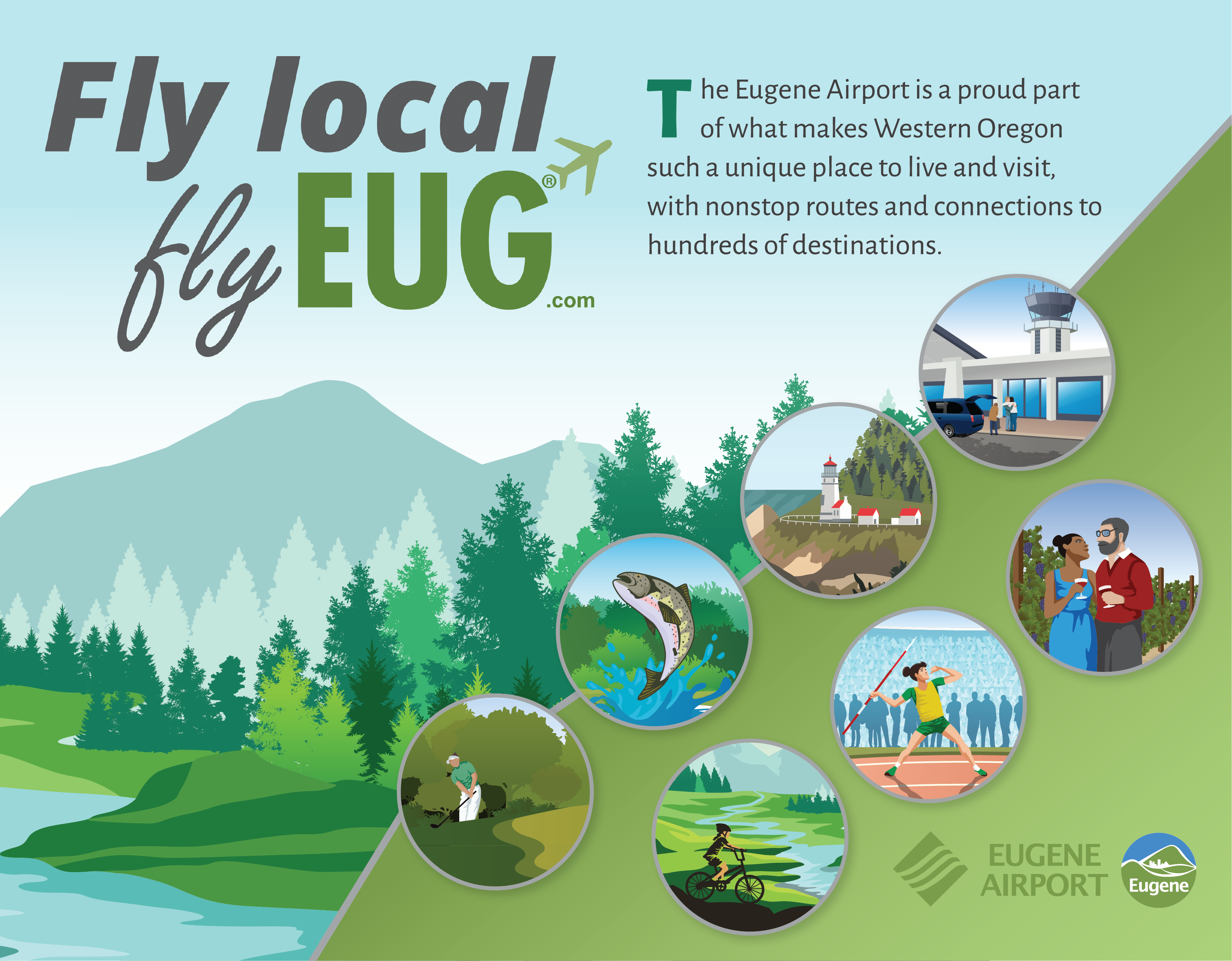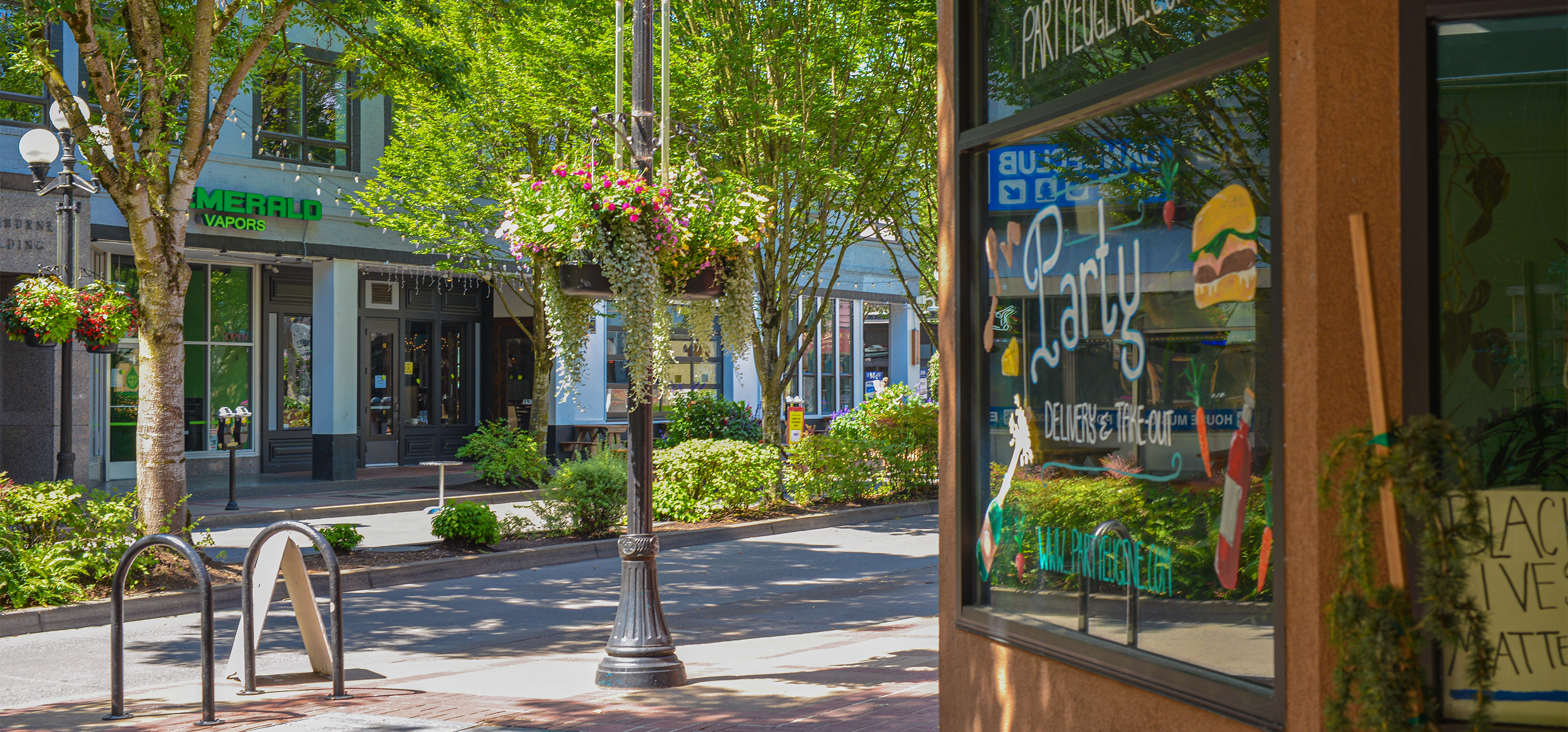
Feature
Businesses Stick with Downtown
article by Lance F. Robertson
After 13 years in academia, where she earned a doctorate in comparative literature from the University of Oregon, Andrea Gilroy’s career path took a turn. Playing off her doctoral dissertation in comics history and identity, she decided to start a bookstore in downtown Eugene specializing in comics, graphic novels and other comics-related publications. Her shop, Books With Pictures, opened in what turned out to be a momentous time in our history: March 2020.
Books with Pictures
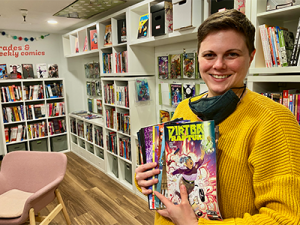 You might think opening a new retail business on the cusp of the worldwide pandemic and its ensuing economic disruption isn’t a recipe for success, especially for someone who had never run a retail business before. But through perseverance, creativity and offering a unique niche that she calls “comics for everyone,” Gilroy is still in business. Books With Pictures survived the worst of the pandemic and is turning into a profitable endeavor.
You might think opening a new retail business on the cusp of the worldwide pandemic and its ensuing economic disruption isn’t a recipe for success, especially for someone who had never run a retail business before. But through perseverance, creativity and offering a unique niche that she calls “comics for everyone,” Gilroy is still in business. Books With Pictures survived the worst of the pandemic and is turning into a profitable endeavor.
“It’s really humbling to be where we are now,” she says. “We’re doing well.”
Gilroy is just one of many locally owned businesses and entertainment venues in downtown Eugene that have had similar–but not identical–experiences during the past two years. These entrepreneurs have shown the perseverance, optimism and entrepreneurial spirit that have made downtown the historic, economic and social heart of Eugene.
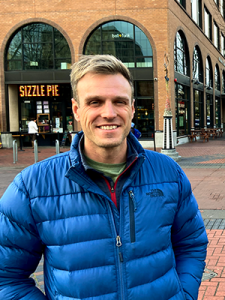
“The resiliency we’ve seen in the business community downtown is quite remarkable,” says Eric Brown, downtown manager for the city of Eugene. “It’s really been encouraging,” Brown adds that a half-dozen new small businesses have opened downtown since the pandemic started, and there’s more residential housing planned or under way that “should help activate our public spaces and benefit merchants, restaurants, bars and entertainment venues. Entrepreneurs continue to choose to locate downtown.”
How are some other downtown businesses and entertainment venues faring today? We briefly look at three others in addition to Gilroy’s bookstore, as they navigate emerging coronavirus variants, long-running challenges related to homelessness, and continued economic uncertainty. Each of them shares the community vision of making downtown a more vibrant and attractive place to visit, live, and work.
PIVOT Architecture
The 65-year-old firm in 2011 became the first tenant in the renovated, five-story Commerce Center building at Broadway and Willamette. That was intentional, says Kari Turner, one of PIVOT Architecture’s principals, because of the company’s commitment to creating a strong downtown core.
“We are committed to downtown,” she says. “We want to see downtown thrive, so we felt that we had an obligation to help do that.”
PIVOT co-principal Toby Barwood echoes that commitment. “We’re in the business of place-making, and we want to be a part of remaking downtown Eugene. We want to help shape downtown again,” he says. Locating downtown also makes it easier for the sustainability-oriented firm’s 30 employees to bike, walk, or use the bus to get to and from work.
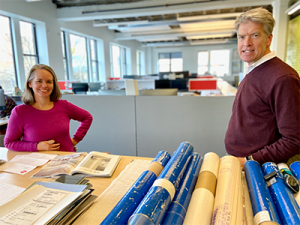 Both Barwood and Turner are optimistic about downtown and its future. Turner believes that generating more workers and residents downtown will, in turn, reduce the number of unhoused people who sleep and hang out in public spaces downtown. She points to the city of Eugene’s outdoor-dining “Streatery” project on Broadway during the pandemic as an example of that.
Both Barwood and Turner are optimistic about downtown and its future. Turner believes that generating more workers and residents downtown will, in turn, reduce the number of unhoused people who sleep and hang out in public spaces downtown. She points to the city of Eugene’s outdoor-dining “Streatery” project on Broadway during the pandemic as an example of that.
Barwood says downtown’s current state is part of an ebb and flow that most communities go through, starting with creation of the ill-fated pedestrian-only mall a half-century ago. “Since then, downtown has gone in waves,” he says. “Today, downtown is struggling a bit,” but he believes it is “full of great ideas,” energy, and potential.
Party Bar and Party Market and Wine
Mark Kosmicki started his all-local and organic food cart “Party” almost 10 years ago, but he and spouse Tiffany Norton moved into a permanent space in 2015 with “Party Downtown” in the back of a shared space on West Broadway. When the other business folded, they remodeled the Broadway side of the business and launched Party Bar, renaming the back section Party Market and Wine.
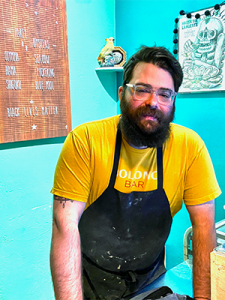 The pandemic has been especially hard on restaurants, but Kosmicki says the restaurant-bar-wine shop has weathered the economic storm, in part thanks to loyal customers, the Streatery, an urban renewal loan from the city, and other financial support from NEDCO and small individual investors.
The pandemic has been especially hard on restaurants, but Kosmicki says the restaurant-bar-wine shop has weathered the economic storm, in part thanks to loyal customers, the Streatery, an urban renewal loan from the city, and other financial support from NEDCO and small individual investors.
“We’re treading water,” Kosmicki says. “Business is almost back up to pre-pandemic levels.”
He adds that, “working with the city has been great,” and that the Streatery project, “was the best thing that’s been done downtown in the last decade, or longer. It showed people that downtown is safe. It’s those kinds of efforts that will keep downtown viable and make it more attractive for people.”
Kosmicki adds that two recent city-led downtown developments–construction of a year-round farmers market and pavilion, and the new “Eugene Loo” public bathroom–will advance the goal of making downtown more viable and attractive.
The Jazz Station
During the pandemic, The Jazz Station on West Broadway took advantage of the opportunity to totally remodel the performance space, bar, and kitchen. The entertainment venue reopened in September at half-capacity, and the non-profit Willamette Jazz Society that runs The Jazz Station is starting to rebuild its once-vibrant educational programs in collaboration with the Eugene School District, University of Oregon, and Lane Community College. The organization also was awarded an Oregon Cultural Trust grant that enabled it to hire a half-time operations manager and two part-time staff.
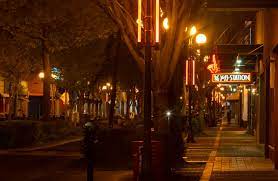 “We used the pandemic to invest in our future downtown,” says Eve McClure, the volunteer business manager and treasurer. “Our investment so far is paying off. We have more younger faces, new faces. We’re playing almost every night to sold-out crowds.”
“We used the pandemic to invest in our future downtown,” says Eve McClure, the volunteer business manager and treasurer. “Our investment so far is paying off. We have more younger faces, new faces. We’re playing almost every night to sold-out crowds.”
McClure says, “It’s been encouraging to see new retailers coming into downtown.” But while she “loves downtown,” the “ultimate solution to reviving our downtown economic retail engine” will require a collaborative effort at all levels – from local business owners to city, state and federal governments – to address homeless issues.
“We must work in concert with all participants to reinvest,” she says. “It will take big policy changes from the state and federal government to house the unhoused, repurpose policing focus and give help to the mentally ill. All this is necessary to provide a more welcoming and safer environment for both business folk and community members alike to re-invest and want to be downtown.”
The City of Eugene, Eugene Area Chamber of Commerce, and Onward Eugene are planning a walking tour of downtown projects for interested community members in the spring. “We are looking forward to the opening of the new Farmer’s Market location, the connection of downtown with the riverfront, and more this year,” says Brown. “There are a lot of exciting things on the horizon.”
Business owners are encouraged to share additional ideas, questions, and comments at ebrown@eugene-or.gov.
Lance Robertson is a freelance writer, communications consultant and instructor at the University of Oregon School of Journalism and Communication.


